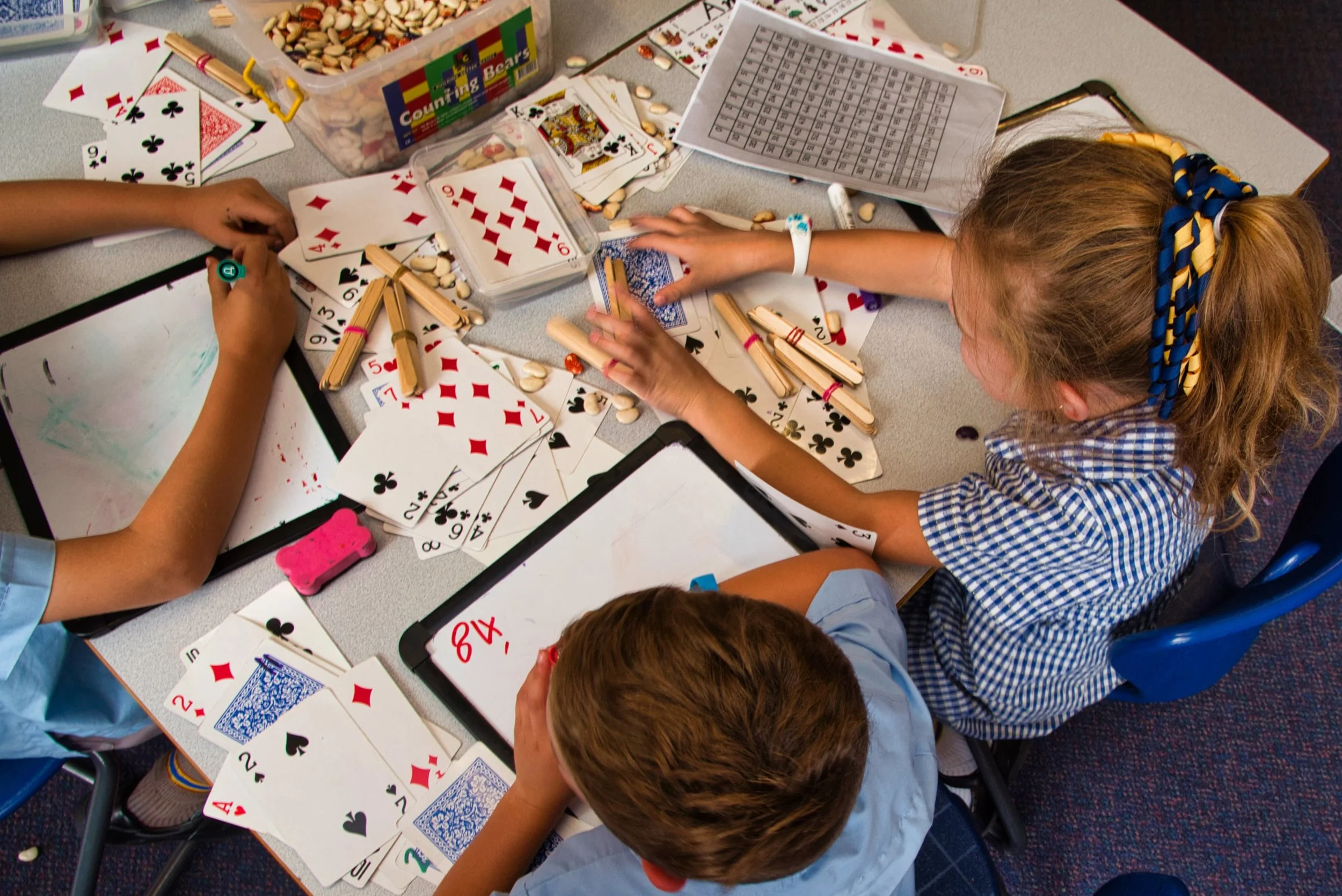Numeracy
Mathematics has developed into a sophisticated, complex body of knowledge that pervades all aspects of our lives. It has applications in all human activities and everyday situations. Competence in Mathematics enhances our understanding of the world and the quality of our participation in society.
The Mathematics Curriculum at St. Therese’s is an important and integral part of the total school program. It aims to enhance the mathematical experiences and guide students through the various developmental stages so they are equipped with competent and flexible numeracy skills.
At St Therese’s, we aim to:
Provide learning opportunities for students to develop conceptual understanding, rather than learn multiple ‘rules without reasons’
Equip students with mathematical skills and knowledge so they can deal confidently and competently with daily life
Develop a ‘love of mathematics’ in students
Develop an increasingly sophisticated understanding of mathematical concepts and fluency with processes and are able to pose, solve problems and reason in the areas of Number and Algebra, Measurement and Geometry and Statistics and Probability
Use a variety of modes of classroom activity (such as partner work, small group work, whole-class activities)
Recognise individual differences and different learning styles and needs
Include investigations, problem-solving and open-ended tasks throughout the learning experiences
Use data to inform our teaching
Numeracy Intervention (EMU)
The Extending Mathematical Understanding (EMU) Program is a short term, intensive numeracy intervention program that targets students in Year One and Year Two who are struggling in aspects of whole number learning. Students are identified based on analysis of the Mathematics Assessment Interview, which is administered by the classroom teacher at the beginning of the year. From these results, students are identified and selected to be on the EMU program.
The program involves the EMU specialist teacher working with groups of three students, outside the classroom five times per week for 30 minutes per lesson for a period of 10-20 weeks. The sessions consist of activities that allow the students to develop their counting skills; rich tasks focusing on pattern, addition and subtraction, multiplication and division and measurement contexts; and concludes with reflection time. Students will be given daily tasks to be completed at home with their families. For the program to make a significant impact on the participants, home support is crucial.
Adapted from Extending Mathematical Understanding Intervention, Ann Gervasoni, 2015.


